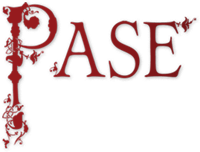Table of Contents
Top of page
Name
Summary
Distribution Map
Property List
Profile
Bibliography
Bottom of page
Wulffrith 5
father of Thorfridh (Lincolnshire), fl. c. 1050?
Male
DWP
4 of 5
Summary
Wulffrith 5 was the father of Thorfridh , who was the holder of two mills in south-west Lincolnshire TRE.Profile
Wulffrith 5 is known only from the patronymic of his son Thorfridh, who occurs in DB in the form Turued F[ilius] Vlued. Thorfridh held two mills TRE at Barkston in Lincolnshire and in Queen Eadgyth’s soke of Grantham; he does not appear to have held any land at Barkston apart from the mills.It cannot be presumed that Wulffrith was still alive in 1066, or that he ever held the two Barkston mills; that his son was an adult holding property by that date does provide a rough indication of Wulffrith’s age. A floreat of c.1050 for him is therefore suggested here, although this is conservative and it could be as much as three decades earlier than this.
Although the spelling Vlued could be interpreted as representing the Old English name Wulfræd rather than Wulffrith, the DB spellings of Thorfridh (in this entry and elsewhere) confirm that the second element can better be read as ‑frið (von Feilitzen 1937: 75-6, 83-4, 392, 418-19; Fellows Jensen 1968: lxxiv, lxxxv, 303-4). It is also formally possible to interpret Vlued as Scandinavian name comprising the Old Norse elements ulf and frøðr rather than their Old English equivalents wulf and frið, although no such name is recorded from England.
It is possible that (in or probably before c.1050) a man with the OE name Wulffrith was following a contemporary fashion by giving his son a name in keeping with those of the new Scandinavian élite (cf. Insley 1985: 53), albeit perhaps one that also reflected an element of his own name.
Bibliography
von Feilitzen 1937: O. von Feilitzen, The Pre-Conquest Personal Names of Domesday Book, Nomina Germanica 3 (Uppsala, 1937)
Fellows Jensen 1968: G. Fellows Jensen, Scandinavian Personal Names in Lincolnshire and Yorkshire (Copenhagen, 1968)
Insley 1985: J. Insley, ‘Some Scandinavian personal names in south-west England from post-Conquest records’, Studia Anthroponymica Scandinavica 3 (1985), 23-58
